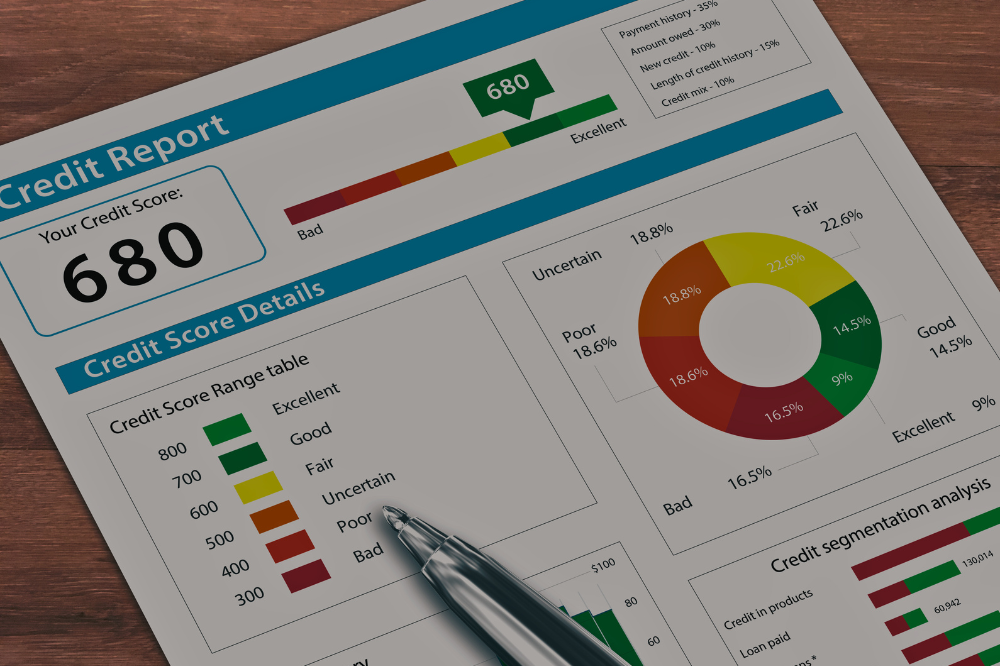You probably have already asked yourself “how long does negative information stay on your credit report?”. Well, find the answer now!
Your credit report is a vital piece of your financial life, it displays your borrowing habits, including credit card usage, loans, and any public records related to your finances. This information is used by lenders to assess your creditworthiness, which determines whether you qualify for a loan, the interest rate you’ll be offered, and even the cost of your insurance. So, if you worry about how long negative information stays on your credit report, you’re not alone.
Let’s explore how long different types of negative information linger, how positive information factors in, and most importantly, how you can improve your credit score, so you can get better financial opportunities. Also, if you want to check out more financial tips on our website, you can click on this link!
What Is a Credit Report?
It is a detailed record of your financial activity, compiled by credit bureaus – Experian, Equifax, and TransUnion being the major ones in the United States. These reports include information such as:
- Personal Information: your name, address, Social Security number, and date of birth;
- Credit Activity: a list of all your credit card accounts, loans (including mortgages and auto loans), and any lines of credit you possess;
- Repayment History: this details your payment history for each account, including on-time payments, late payments, and delinquencies;
- Public Records: bankruptcies, foreclosures, tax liens, and civil judgments may also be included in your credit report.
It’s important to note that you can request your reports at Annual Credit Report. Monitoring your credit reports regularly allows you to identify any errors or discrepancies that could be negatively impacting your credit score.
How Long Does Negative Information Stay On Your Credit Report?
The Fair Credit Reporting Act (FCRA) dictates how long negative information can remain on your credit report. Most negative information, such as late payments, charge-offs (when a creditor writes off a debt as uncollectible), and collections accounts, will be removed after seven years from the date of the first delinquency. Here are some specific negative items that stay on your credit report:
- Late Payments: late payments of 30 days or more will generally stay on your report for seven years from the original delinquency date;
- Charge-Offs and Collections: these negative marks typically remain for seven years from the date the account was charged off;
- Repossessions: will generally stay on your report for seven years from the date it was first reported late;
- Foreclosures: can remain on your credit report for up to seven years after 90 days of missed payment;
- Bankruptcy: chapter 7 bankruptcy typically stays on your report for ten years, while Chapter 13 bankruptcy remains for seven years.
How Long Does Positive Information Stay On Your Credit Report?
While negative information has a set expiration date, positive information, such as on-time payments and low credit card balances, generally stays on your credit report for the same length of time as your accounts remain open. Once you close an account, the positive information associated with it may remain on your report for up to ten years. Remember that recent positive activity carries more weight with creditors than information from several years ago.
How to Improve Your Credit Score
- Monitor Your Credit Regularly and Dispute Errors: first things first, get a free copy of your credit reports from each bureau and meticulously examine them for any inaccuracies. The FCRA allows you to dispute any errors you find. If you identify mistakes, you can file a dispute with the credit bureau and the creditor who reported the information. The credit bureau is obligated to investigate your dispute and remove any errors they verify;
- Focus on On-Time Payments: this is an important factor influencing your credit score. Make sure you pay all your bills on time, every time. Setting up automatic payments can help ensure you never miss a due date;
- Credit Card Utilization Ratio: high credit card balances can significantly drag down your score if it’s too close to your card limit, the ideal ratio is 30%. Also, develop a plan to pay down existing debt and avoid accumulating new debt;
- Become an Authorized User: being added as an authorized user on someone else’s credit card with a good payment history can give your score a boost. Just make sure the cardholder is financially responsible and pays their bills on time;
- Secured Credit Cards: if you have limited credit history or a poor credit score, consider getting a secured credit card. Secured cards require a refundable security deposit that serves as your credit limit. Using them responsibly and making on-time payments can help you build positive credit history;
- Limit Hard Inquiries: hard inquiries, which occur when you apply for a new line of credit, can cause a temporary dip in your credit score. Avoid applying for multiple lines of credit in a short period.

